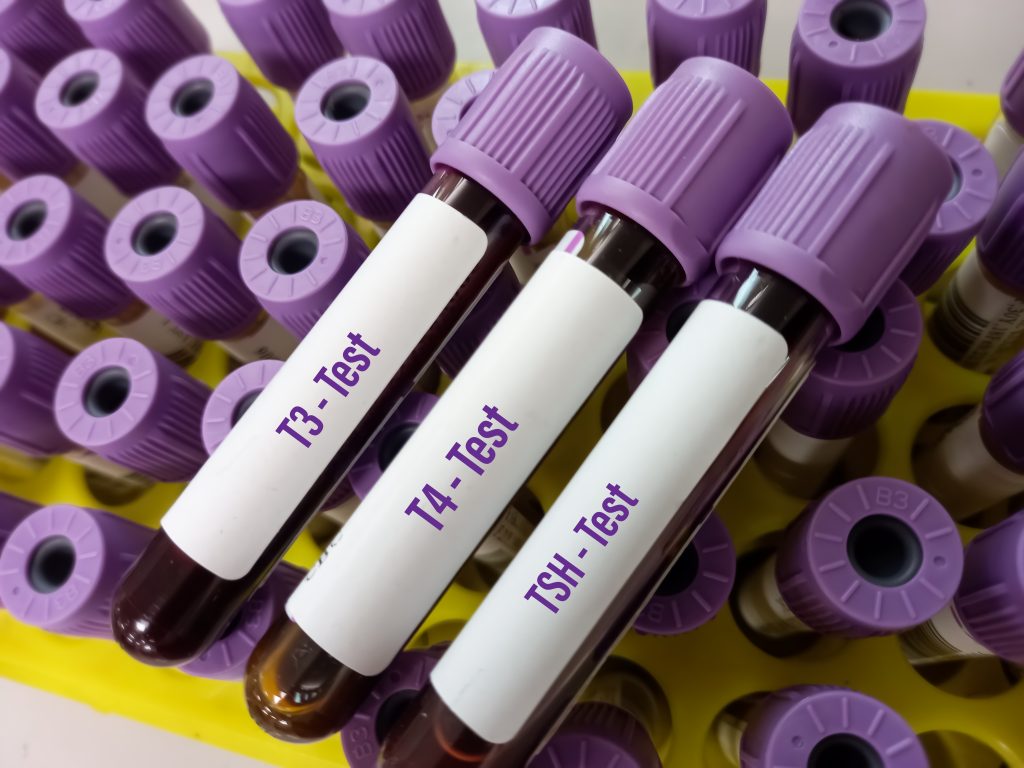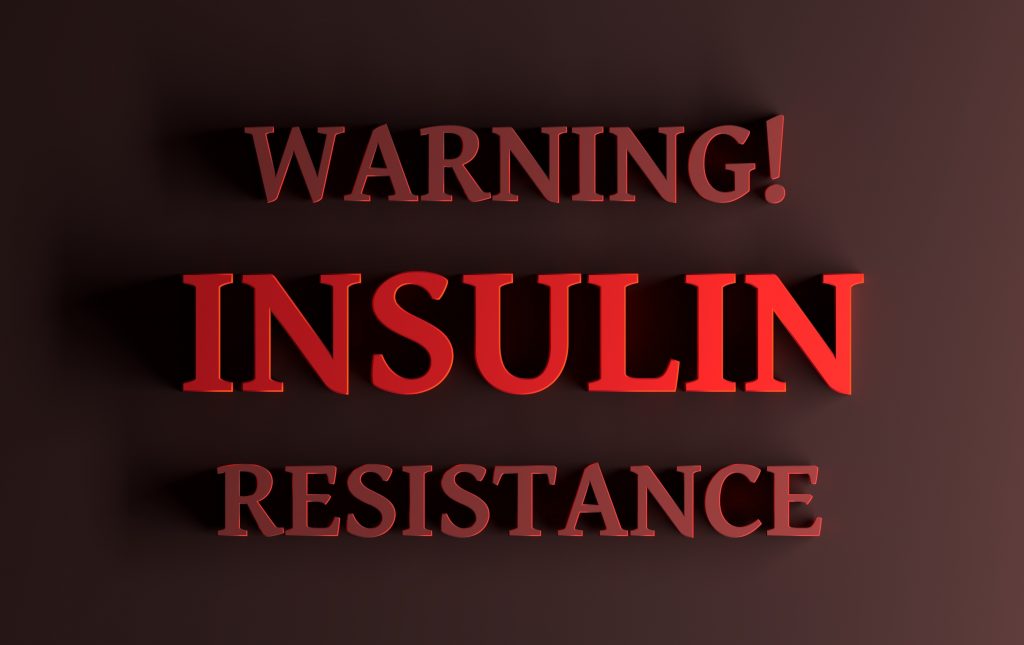Ever felt like you’re doing everything right to lose weight, but the scale just won’t budge? It’s beyond frustrating, and it’s time to get to the bottom of it. You’re not alone in this struggle, and there’s a reason why your efforts might not be giving you the results you deserve.
You’ve likely heard countless tips and tricks for weight loss, but what if there’s something deeper going on? Sometimes, despite all the dedication, factors beyond your control can play a significant role in your weight loss journey. These factors are not mere excuses – they’re real medical considerations that could be holding you back.
If you’ve ever wondered why the pounds aren’t melting away despite your hard work, you’re about to find out. We’re here to unravel the science-backed truths behind why weight loss might be a tougher battle for some. From hidden thyroid issues affecting your metabolism to hormonal shifts wreaking havoc, we’ve got the facts you need.
This isn’t about quick fixes or empty promises. We’re diving into the genuine medical reasons that might be standing between you and your weight loss goals. It’s time to address the questions in your mind and get the answers you deserve.
7 Medical Reasons Why You’re Not Losing Weight
1. Thyroid Troubles

When it comes to your body’s internal workings, the thyroid gland takes center stage. This small but mighty gland sits at the base of your neck, and its job is crucial- it regulates your metabolism. Think of it as your body’s own internal thermostat that controls how fast or slow your body burns calories.
Now, sometimes this thyroid superstar can go a bit off track, leading to two common issues- hypothyroidism and hyperthyroidism. Let’s break them down-
Hypothyroidism (Underactive Thyroid)
This happens when your thyroid doesn’t produce enough thyroid hormones. These hormones are like the conductors of your body’s metabolic orchestra. With too few of them, your metabolism might start moving at a snail’s pace. This sluggishness can make it harder for you to lose weight, even when you’re putting in the effort.
Hyperthyroidism (Overactive Thyroid)
On the flip side, hyperthyroidism occurs when your thyroid goes into overdrive, producing too many thyroid hormones. This can speed up your metabolism to an excessive extent, making weight loss a bit tricky as well. It’s like your body is revving its engine a little too fast.
Both of these thyroid troubles can mess with your weight loss journey. Hypothyroidism slows things down, making weight loss feel like an uphill battle. Hyperthyroidism, while less common, can also throw a wrench into your plans by making your body burn through calories too quickly.
You’ve been doing everything right and still not seeing the numbers you want on the scale, it might be worth checking in with your thyroid. A simple blood test can help determine if your thyroid is playing a role in your weight loss challenges.
Remember, it’s not a verdict – just a piece of the puzzle. And that’s what we’re here to help you solve.
2. Insulin Resistance and Weight Woes

Let’s talk about insulin – your body’s blood sugar manager. Imagine insulin as a key that unlocks the doors to your body’s cells, allowing sugar (also known as glucose) to enter and give you energy. It’s an essential process, like fueling up your car.
But what happens when this process hits a roadblock? That’s where insulin resistance steps in. It’s like your cells change the locks, and suddenly, insulin’s key doesn’t work as effectively. This means sugar can’t enter your cells easily, so it hangs out in your blood, raising your blood sugar levels.
Insulin Resistance Weight Connection
Higher blood sugar levels trigger your body to store more fat, particularly around your belly. And when you have insulin resistance, your body often stores that fat more stubbornly. On top of that, insulin resistance can mess with your hunger signals, making you crave more sugary and starchy foods.
Insulin resistance sets up a tricky cycle. It leads to weight gain, and excess weight can make insulin resistance worse. It’s a frustrating tag team that can make losing weight feel like an uphill battle.
But the good news is that you’re not powerless. Managing insulin resistance starts with lifestyle changes. Foods that don’t cause rapid spikes in blood sugar become your allies – think whole grains, lean proteins, and plenty of veggies. Physical activity is also key – exercise helps your cells become more responsive to insulin.
So, if you suspect insulin resistance might be part of your weight loss puzzle, don’t lose hope. Small, consistent changes can make a big impact on how your body handles insulin and, ultimately, your weight.
3.Hormonal Roller Coaster (Women Only)
Ladies, your body is like a symphony of hormones, conducting various stages of life from puberty through pregnancy and beyond. These hormonal shifts, like a rollercoaster ride, can impact more than just your mood – they can also play a significant role in your body’s weight dynamics.
Puberty

Remember the teenage years? Your body undergoes a whirlwind of changes during puberty as hormones surge and spark transformations. This hormonal dance often leads to shifts in how your body stores fat. Suddenly, you might find your figure changing – curves emerging as your body redistributes fat to areas like your hips and breasts. It’s all part of the natural progression into adulthood.
Also Check – Puberty: What’s normal, what’s not?
Pregnancy

The miracle of nurturing life brings its own set of hormonal changes. Pregnancy hormones skyrocket, driving the essential process of weight gain. Your body is a sacred vessel, supporting the growth of a tiny human being. Weight gain during pregnancy is healthy and expected, as it contributes to your baby’s development.
Menopause

As you approach the stage of menopause, hormonal shifts throw your body for a loop. Oestrogen levels dip, and your metabolism may decide to take a slower pace. Suddenly, those extra pounds might appear as if from nowhere. Rest assured, this experience is common among women traversing this phase of life.
Also Check – Weight Gain in Perimenopause – Strategies for Manage Metabolic Changes
Why Weight fluctuations?
Hormones wield a considerable influence on how your body handles fat storage, especially during these transformative life stages. While these shifts might feel puzzling or frustrating, remember that they are an integral part of your unique journey as a woman.
The art of managing your weight during these times involves embracing self-care. Nourishing your body with a balanced diet and maintaining an active lifestyle can help you navigate these hormonal ebbs and flows more gracefully. Your body is adapting to change, and your choices can contribute to this journey in a positive way.
Real stories from women who have journeyed through these phases provide a source of inspiration and solidarity. Weight fluctuations might be a part of the narrative, but they don’t define who you are. Embrace the evolving contours of your body, for they tell the tale of a life rich with experience and strength.
If you’ve been pondering why your weight seems to follow its own rhythm during these significant phases, remember that hormones hold the key. You’re not alone on this voyage – countless women share this journey with you. With the right mindset and approach, you can navigate these shifts while upholding your health and overall well-being.
4. Polycystic Ovary Syndrome (PCOS)
Ladies, let’s shine a light on a condition that affects more women than you might think – Polycystic Ovary Syndrome, or PCOS. It’s like a puzzle piece in the grand mosaic of medical reasons that can impact weight loss.

What’s PCOS?
PCOS is like a hormonal dance gone a little offbeat. It’s common, affecting many women worldwide. With PCOS, small cysts can form on your ovaries due to hormonal imbalances. These imbalances throw things like your menstrual cycle, fertility, and even insulin sensitivity a bit out of sync.
The Hormonal Havoc
Here’s where it ties into weight. PCOS can lead to higher levels of certain hormones, like insulin and androgens (often thought of as “male hormones”). These hormonal shifts can make your body a bit more resistant to insulin, meaning it might be harder to manage blood sugar levels. This can lead to weight gain, especially around the midsection.
The Weight Factor- Weight management can feel like navigating a maze with PCOS. The hormonal cocktail can make you prone to gaining weight and make it challenging to shed those extra pounds. The connection between PCOS and weight isn’t just about appearance – it’s about how your body functions.
Also Check – Yoga for Period Relief – 8 Poses to Relieve Menstrual Cramps, Pain, and Irregularity
How to take Charge of PCOS
There are ways to manage your weight effectively with PCOS. Remember, small changes can lead to big differences. A balanced diet that focuses on whole foods and mindful eating can help regulate blood sugar levels. Staying active isn’t about extreme workouts – it’s about finding activities you enjoy that keep you moving.
Mind-Body Balance- Managing stress through relaxation techniques like yoga or meditation can also help your body find its equilibrium. And hey, don’t be afraid to ask for support – healthcare professionals can tailor advice to your unique situation.
PCOS might add an extra layer of complexity, but it doesn’t define your journey. By understanding your body and its needs, you can tackle weight management while living life to the fullest. Remember, you’re not alone in this – many women face PCOS with courage and resilience, showing that it’s possible to find your path to a healthier you.
5. Medications and Weight Battles

Life can throw us curve balls that sometimes require a helping hand in the form of medications. But did you know that certain medications can have an impact on your weight loss journey? Let’s take a closer look at this often overlooked aspect.
Common Culprits- Some medications, while necessary for your health, can play a role in weight-related struggles. It’s not about blame – it’s about understanding the effects. Medications like certain antidepressants, antipsychotics, and steroids are known to cause weight gain for some individuals.
How Medications Influence Weight?
These medications can stir the pot in your body’s delicate balance. They might slow down your metabolism, making calorie burn a bit more sluggish. Some can also spark an increase in appetite or change the way your body stores fat. It’s like they’re whispering directions to your body’s systems.
A Chat with Your Healthcare Provider- If you’ve noticed changes in your weight while taking medications, don’t feel discouraged. It’s essential to have an open conversation with your healthcare provider. They can offer insight into the potential effects of your medications and whether they might be contributing to your weight challenges.
Finding the Right Path- Remember, everyone’s body reacts differently. While medications might add an extra layer of complexity to your weight loss journey, they’re not a dead-end road. Your healthcare provider can help you explore strategies to manage weight while still benefiting from the medications you need.
So, if you’re puzzled over why weight loss seems like an uphill battle even with your best efforts, remember that medications can play a role. It’s all about striking a balance between your health needs and your weight management goals. Your healthcare provider is your ally – they’re there to help you find the best path forward.
6. Stress, Cortisol, and Weight Management

Life can get hectic, and stress often tags along for the ride. But did you know that stress isn’t just a mental state? It has a real impact on your body, and this connection to weight management might surprise you.
We all know that stressed feeling – deadlines looming, responsibilities piling up. But stress isn’t just in your mind; it’s a chain reaction that affects your body. When you’re stressed, your body releases a hormone called cortisol. Think of it as your body’s built-in alarm system.
Also Check – How Does Stress Influence Weight Gain and Loss?
The Cortisol Factor
Now, here’s where it gets interesting. Cortisol isn’t all bad – it helps your body deal with short-term stress. But when stress becomes chronic, your body keeps releasing cortisol. This continuous stream can lead to increased appetite, particularly for comfort foods that tend to be high in calories and sugar.
Also Check -The Role of Cortisol in Weight Gain- How Stress Shapes Your Body
The Weighty Connection
Guess what? Those extra calories can quickly find a new home – your waistline. Increased cortisol levels can encourage your body to store fat, especially around your midsection. It’s like your body is preparing for a potential famine, even though modern life rarely involves such scenarios.
Also Check – 11 Calming Breathing Techniques for Relaxation and Stress Relief
Cracking the Stress Code
Now for the good news – you have more control than you might think. Managing stress isn’t about erasing it completely (because let’s face it, life happens), but about finding healthy ways to cope-
- Move It- Physical activity is a stress-buster. Even a brisk walk or some gentle yoga can help clear your mind.
- Breathe Deeply- Deep, mindful breathing can calm your nervous system and lower cortisol levels.
- Prioritise Sleep- Quality sleep helps your body regulate stress hormones more effectively.
- Mindfulness Magic- Practices like meditation and journaling can bring a sense of calm to your day.
Also Check – Shedding Stress-Induced Weight – 14 Effective Strategies for Success
Your Stress, Your Control- Remember, stress is a part of life, but it doesn’t have to be the boss of your weight. By managing stress, you’re not only supporting your mental well-being but also making strides in your weight management journey. It’s all about finding your personal stress-relief toolkit and using it when life gets a bit too demanding.
7. Sleep Deprivation and Weight Gain

Ever felt like you’re running on fumes because you didn’t catch enough Z’s? Well, here’s the twist – inadequate sleep doesn’t just leave you groggy; it can also affect your weight.
Sleep and Weight Connection
Believe it or not, the amount of sleep you get each night can have a hand in your weight management journey. When you don’t get enough sleep, it can throw your body’s natural balance off-kilter.
Hormone Havoc- Sleep is like a conductor for hormones that control appetite and metabolism. When you’re sleep-deprived, your body produces more of the hunger hormone called ghrelin and less of the “I’m full” hormone called leptin. It’s like your body’s hunger signals get mixed up.
Midnight Snack Temptations- Here’s the kicker – when those hormones go haywire, you might find yourself craving snacks, especially the not-so-healthy kind. It’s not just in your head – your body is genuinely looking for quick energy, often found in sugary or fatty treats.
Also Check – 29 Global Collection of Relaxing Homemade Drinks to Help You Sleep
Catch More Z’s, Shed More Pounds
Now for the good news – improving your sleep quality can give your weight management efforts a boost-
- Prioritise Sleep- Make sleep a non-negotiable part of your routine. Aim for 7-9 hours of quality sleep each night.
- Create a Sleep Haven- Set up your sleep environment for success – a comfortable mattress, dark room, and a cool temperature.
- Unplug Before Bed- Put away screens at least an hour before bedtime. The blue light can mess with your sleep-inducing hormone, melatonin.
- Stick to a Schedule- Try to go to bed and wake up at the same time every day, even on weekends.
Also Check – A Bedtime Yoga Routine for Peaceful Sleep: 13 Yoga Poses You Can Do in Bed and Beyond
Your Secret Weight Weapon- Consider sleep your secret weapon in the quest for better health. By getting enough rest, you’re not only supporting your energy levels and overall well-being but also giving your body the tools it needs to manage weight effectively. So, the next time you’re tempted to cut your sleep short, remember that those extra hours of shut-eye might just be the missing piece of your weight puzzle.
Also Check – Ayurvedic Sleep Elixir- 14 Foods and Drinks for Restful Nights
Conclusion-
And there you have it – a journey through the intricate landscape of medical reasons that might be playing a part in your weight loss challenges. We’ve explored the hidden effects of thyroid imbalances, the role of insulin resistance, and the impact of hormonal shifts unique to women. We’ve delved into the influence of medications, the connection between stress and weight, and the underestimated power of quality sleep.
Remember, you’re not alone in this. These factors aren’t just excuses; they’re real, valid considerations that could be shaping your weight journey. It’s crucial to approach your weight management path with understanding and compassion for your body.
While these medical factors can pose hurdles, they don’t define your journey. Each obstacle presents an opportunity for growth and discovery. Armed with knowledge, you’re better equipped to navigate these challenges, seek support, and find strategies that work for you.
If you’re questioning why the scale isn’t moving as you’d like, it’s worth considering these medical factors as potential puzzle pieces. Seek guidance from healthcare professionals who can help unravel these complexities and provide tailored solutions.
Your weight journey is a story that only you can tell, and it’s made richer by the twists and turns you encounter. As you move forward, remember that you have the tools, knowledge, and support to overcome these medical roadblocks. Here’s to a healthier, empowered you – embracing each step of the journey and rising above any challenges that come your way. Your path to better health is unique, and you’re capable of reaching your goals.

Leave a Reply